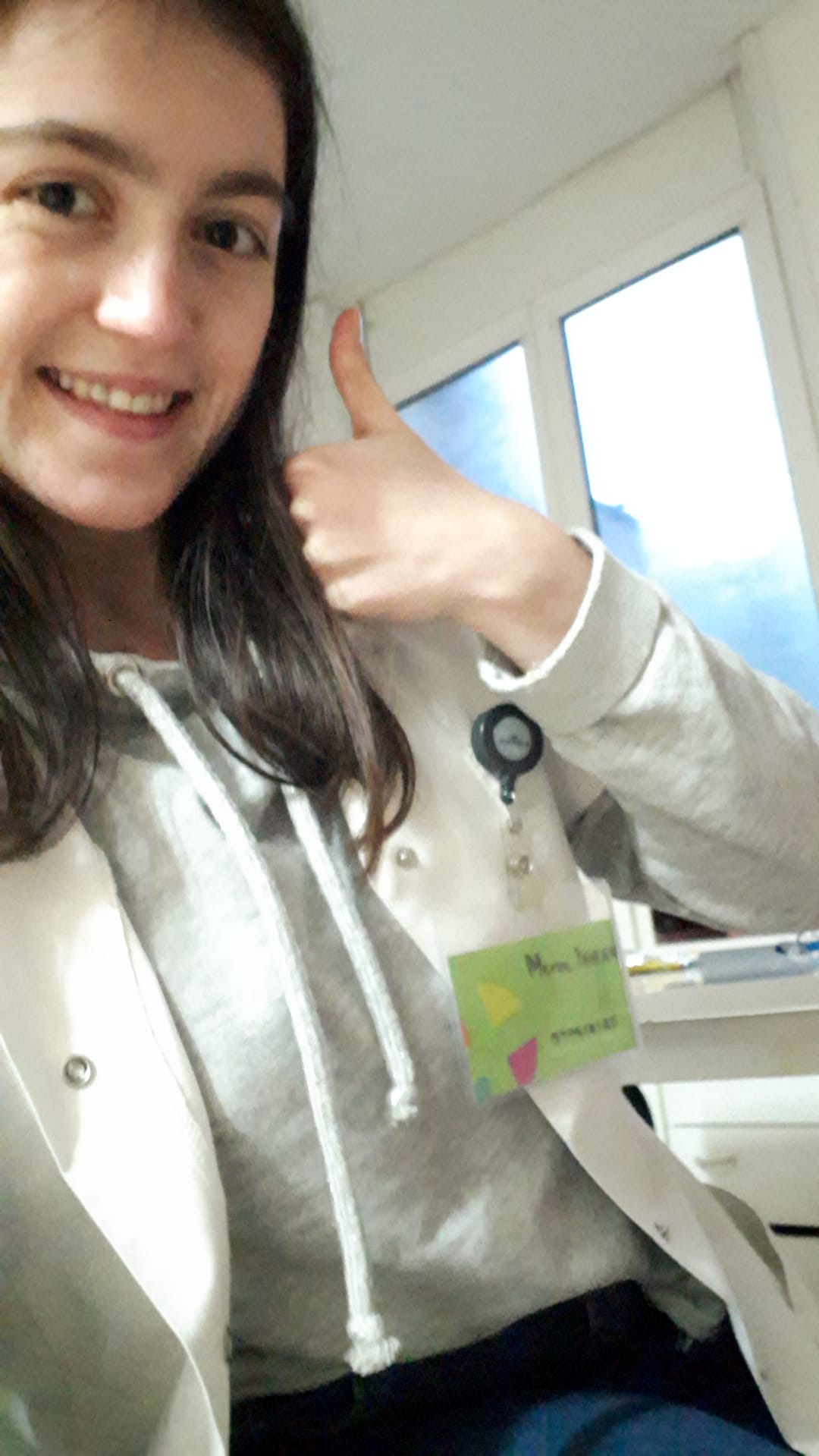The Pharmacy Game Newsletter

Who are you?
Hello, I’m Merve Duran, a student at the Free University of Brussels. I’m in my second masters year of pharmaceutical sciences and because of this I participated in the Pharmacy Game.
If you could choose between conventional education and the Pharmacy Game what would be your preference and why?
I am very grateful that I have had the opportunity to have this experience, because in contrast to my theoretical lessons, it has allowed me to practice my theoretical and practical skills at the same time. It is not always easy to use theoretical knowledge in concrete settings, which means that practice is both necessary and useful.
What was most useful, and which skills did you improve during the Pharmacy Game?
This game has allowed me to hone my pharmaceutical skills without immediately having to be exposed to “the real world” and its potentially serious consequences. This became especially apparent to me in a certain case where a patient had a heparin prescription with a wrong dosage. Some groups had not noticed this, and as a consequence they later received a phone call informing them that the patient had a stomach haemorrhage due to the high dosage. After having experienced this, dosage control became a central part of filling every prescription. This is one example of a skill or lesson that will be useful for the rest of our careers.
Would you like to share some interesting moments you remember while playing the game?
I think that this learning experience was largely made possible because of the careful preparation of the different cases by the professors and teaching assistants. They acted very professionally and gave us much needed and useful feedback. During the game I noticed that as time passed I started gaining more knowledge and that I was better able to efficiently gather information from different sources for cases that I was not yet familiar with. Because of the pandemic the organisation was different this year to ensure everyone’s safety. We were divided in groups and subgroups. Every subgroup had to work on one exercise per day, and there were two groups on campus on any given day. The disadvantage of this method was the fact that the communication between subgroups was limited, which made it much more difficult to learn from each other. As a consequence our professors had requested us to document our experiences and share them during online Teams meetings to make sure every group was up to date.
In conclusion the pharmacy game has been a very educational period for me that has definitely given my “pharmaceutical” confidence a boost. I now feel more ready than ever to enter the professional world.
Back to newsletter